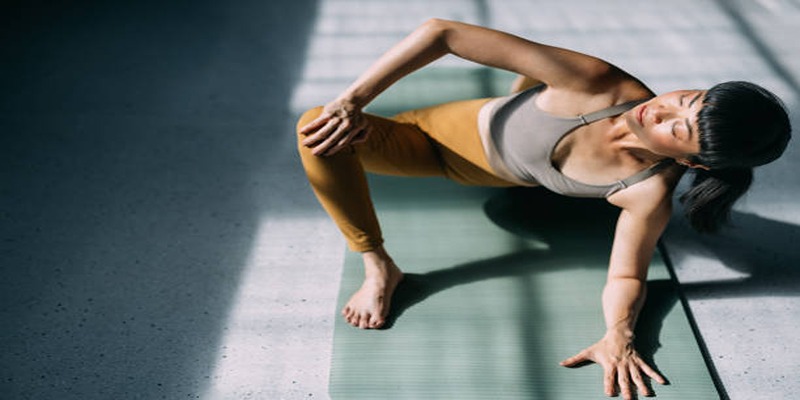The Hidden Advantages of Stretching Beyond Pain Relief
Stretching is often seen as a simple practice to reduce stress and increase flexibility, but the benefits are only outside of pain relief. Regularly to incorporate stretches into your routine can deeply affect both physical and mental welfare. It promotes increased blood flow, improves attitude and prevents damage by supporting joints and muscle health. Stretching also promotes relaxation and reduces stress by encouraging mindfulness and deep breathing. Either a training regimen or part of a standalone activity contributes to better general health and vitality.
1. Boosted Physical Performance
An important for stretching physical shape is still underestimated and acts as a basis for better performance. Regularly to incorporate stretches into your routine increases muscle elasticity, increasing the speed limit. The couple is translated into flexibility better physical performance, whether you are an athlete, exercise enthusiast, or just like to be active.
Before a workout, prepares dynamic stretch your muscles for movement, reduces the risk of injury and increases the overall efficiency. Meanwhile, static stretch after exercise promotes muscle recovery by encouraging blood flow and reducing stiffness.
2. Stress Relief and Mental Clarity
In today’s fast-paced world, stress is an almost constant companion. Stretching provides a simple yet powerful way to ease tension and enhance mental clarity. When you stretch, your body releases endorphins—those “feel-good” hormones that help reduce stress and boost your mood.
Stretching also fosters mindfulness by encouraging you to focus on your breathing and bodily movements. This practice helps you stay present, easing anxiety, sharpening focus, and cultivating a sense of calm.
3. Enhanced Posture and Alignment

Poor posture is a widespread issue, especially for those who spend hours sitting at desks or using electronic devices. Over time, it can lead to chronic pain, muscle imbalances, and even spinal problems. Incorporating regular stretching into your routine can be a powerful way to correct posture and support proper alignment.
Targeted stretches for key areas like the chest, shoulders, and hips can help counteract the negative effects of prolonged sitting. For instance, stretching the hip flexors and hamstrings can relieve lower back tension, while chest-opening stretches can reduce the forward hunch caused by desk work.
4. Enhanced Circulation and Energy Boost
Stretching promotes better blood flow, delivering essential oxygen and nutrients to your muscles and organs. This improved circulation has a positive impact on overall health, fueling your body and optimizing its performance.
If you often feel sluggish during the day, a quick stretch can serve as a natural energy booster. Stretching awakens your body, sharpens focus, and boosts productivity. Unlike caffeine or sugary snacks, it provides a sustainable lift in energy without the risk of an afternoon crash.
5. Boosted Emotional Well-Being
The link between physical activity and emotional health is well-established, and stretching is no exception. Regular stretching helps regulate emotions and supports overall mental well-being. Its gentle, rhythmic movements create a meditative effect, easing tension and promoting relaxation.
Stretching also serves as a powerful act of self-care. Setting aside just a few minutes each day to focus on your body and well-being can nurture a healthier relationship with yourself. This simple practice can enhance self-esteem, alleviate feelings of overwhelm, and provide a sense of accomplishment.
6. Improved Sleep Quality
Sleep is vital for overall health, yet many struggle to get the restful sleep they need. Stretching can be an effective way to enhance sleep quality. Engaging in gentle stretches before bed helps relax tense muscles and quiet the mind, making it easier to both fall asleep and stay asleep through the night.
Stretching can also alleviate physical discomfort that disrupts sleep, such as tension in the lower back or legs, which often leads to restlessness. By incorporating a simple stretching routine into your bedtime ritual, you create a calming signal for your body to unwind and prepare for restful sleep.
7. Enhanced Body Awareness
Stretching fosters a deeper connection with your body, helping you become more attuned to its needs. This increased awareness allows you to identify areas of tension, weakness, or imbalance that might otherwise go unnoticed. By addressing these issues early, you can reduce the risk of injury and support long-term physical health.
Body awareness also promotes mindfulness and self-care. By tuning into your body’s signals, you can make better choices to enhance your well-being. This might mean adjusting your posture, taking breaks from prolonged sitting, or incorporating more movement into your daily routine.
8. Social and Community Benefits
Stretching may often be seen as a solitary activity, but it can also serve as a powerful social experience. Group classes, such as yoga or Pilates, offer more than just physical benefits—they create opportunities to connect with like-minded individuals who share similar health and wellness goals. These gatherings foster a sense of community and mutual support, which can be highly motivating and uplifting.
Participating in group stretching sessions also provides the chance to learn new techniques and gain fresh perspectives. Observing and collaborating with others can enhance your practice, inspire creativity, and encourage you to explore new ways of integrating stretching into your daily routine.
9. Long-Term Health Benefits

Incorporating regular stretching into your routine can significantly enhance long-term health. By increasing flexibility, improving circulation, and supporting better posture, stretching helps preserve mobility and independence as you age. It also lowers the risk of injuries, chronic pain, and age-related conditions like arthritis.
Beyond the physical advantages, stretching offers mental and emotional benefits that contribute to overall well-being. Reduced stress, better sleep, and improved emotional balance all work together to foster a healthier, more fulfilling life.
How to Incorporate Stretching Into Your Daily Routine?
Discover the transformative benefits of stretching by making it a regular part of your day. Here’s how to get started:
- Start Small: Commit just 5-10 minutes a day to stretching. As your flexibility increases, gradually extend the duration.
- Mix It Up: Include a variety of stretches that target different muscle groups. Use dynamic stretches to warm up and static stretches to cool down for a balanced approach.
- Listen to Your Body: Stretch until you feel a gentle pull, never pain. Overstretching can cause injuries, so take it slow and steady.
- Create a Routine: Schedule a specific time each day for stretching to make it a seamless part of your lifestyle.
- Combine with Other Habits: Pair stretching with activities like meditation or light exercise to boost your overall wellness.
Conclusion:
Stretching is far more than a simple remedy for pain relief or injury prevention—it’s a cornerstone of holistic well-being. Its benefits extend across physical, mental, and emotional health, making it an essential practice for enhancing overall quality of life. From promoting better posture and circulation to reducing stress and improving sleep, the positive impacts of stretching are both profound and transformative.












